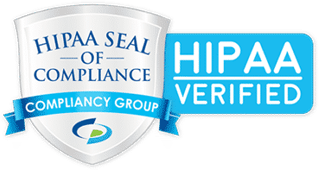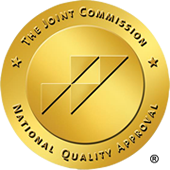Mindfulness Healing for Addiction in Texas
Addiction often stems from unresolved trauma, stress, or emotional pain, and mindfulness helps individuals reconnect with the present moment, reducing impulsive behaviors and cravings. By combining mindfulness with evidence-based therapies like cognitive-behavioral therapy (CBT) and dialectical behavior therapy (DBT), we empower clients to build resilience and sustain long-term recovery.

Is Addiction Impacting Your Life?
Take The First Step To True Healing Today!
What Is Mindfulness?
At Origins Texas Recovery in South Padre Island, Texas, mindfulness in recovery is a cornerstone of our holistic addiction treatment, helping clients develop self-compassion and emotional regulation.
Techniques such as mindful breathing, body scans, and meditation teach individuals to pause before reacting to triggers, reducing relapse risk. Research shows that mindfulness can help rewire the brain, strengthening areas responsible for impulse control and emotional stability. Whether used alongside traditional therapy or as a standalone tool, mindfulness in recovery fosters deep healing.

Why Mindfulness Matters in Addiction Treatment
Contact Our Admissions Team Today
How Origins Recovery Integrates Mindfulness Into Holistic Treatment

Key Mindfulness Techniques Used in Recovery
- Mindful Breathing: Focusing on the breath to anchor the mind and reduce stress
- Body Scan Meditation: Observing physical sensations to release tension and trauma
- Loving-Kindness Meditation: Cultivating self-compassion and forgiveness
- Mindful Walking: Connecting with the present moment through movement
- Urge Surfing: Observing cravings without acting on them until they pass
At Origins Texas Recovery, these practices are taught in individual and group settings, helping clients build a sustainable mindfulness routine for long-term sobriety.
Testimonials
![]()
![]()
![]()
![]()
![]()
Victoria H
I couldn’t recommend Origins more, I first attended their IOP program, then their residential program in South Padre. I’m writing this today a year and a half sober and going strong. Origins has literally saved my life in more ways than one.
![]()
![]()
![]()
![]()
![]()
Emily W
The clinicians are knowledgeable and skilled in a way that is always helpful and never harmful. This program brought me lasting healing and freedom.
![]()
![]()
![]()
![]()
![]()
Mary L
I cannot say enough about Hannah’s House. I entered broken, tired and far more sick than I realized. I was treated with kindness, love, patience and respect by all. I was so frightened to go but sad to leave, that speaks volumes. Thank you from the bottom of my heart to all who put me back together, I am eternally grateful.
![]()
![]()
![]()
![]()
![]()
Jack W
I struggled with my sobriety for over 5 years, but they were able to help me through the 12 steps of AA. I have been sober ever since my experience here. I’ll be hitting 2 years of sobriety in 22 days, thanks to this treatment center. No matter where you go, it’s all about your level of commitment towards gaining a better life ?
![]()
![]()
![]()
![]()
![]()
Jazmine R
Origins was exactly what I needed. The staff were incredibly knowledgeable, compassionate, and helpful. They come with years of experience and consider each individual they’re helping. If you’re looking for a facility that will truly care as much as you/your parents do, or are desperate for a miracle — I can’t recommend Origins more! ❤️
Benefits of Mindfulness in Recovery for Mental Health and Relapse Prevention
Mindfulness activates the body’s relaxation response, lowering cortisol levels and calming the nervous system. Practicing mindfulness can reduce activity in the brain’s fear center while strengthening areas linked to calm decision-making. This makes mindfulness particularly powerful for those in addiction treatment, where stress often triggers relapse.
Mindfulness teaches individuals to observe emotions without being overwhelmed by them, creating space between feeling and reaction. It enhances prefrontal cortex activity—the brain’s control center for impulses and emotional balance. For those in depression treatment, this skill helps break negative thought cycles, while in addiction treatment, it prevents impulsive substance use.
The mindfulness technique “urge surfing” trains people to ride out cravings like temporary waves rather than fighting or giving in. By changing how the brain responds to triggers, mindfulness provides a sustainable tool for long-term recovery.
Regular mindfulness practice rewires the brain, thickening the prefrontal cortex to improve self-control and decision-making. Neuroimaging studies confirm that these structural changes lead to better management of addictive behaviors and depressive thought patterns. This heightened awareness helps individuals pause before acting on destructive impulses; a game-changer for dual diagnosis treatment.
Mindfulness reframes triggers as passing experiences rather than emergencies, reducing their emotional power. For those in recovery, this means facing life’s challenges without automatically turning to substances or negative coping mechanisms.
Individuals who practice mindfulness are less likely to relapse because they develop healthier coping mechanisms. In our aftercare program, we emphasize mindfulness as a relapse prevention tool, equipping clients with skills to navigate life’s challenges without turning to substances.
Mindfulness vs. Traditional Therapy: Complementary or Alternative?

Is Mindfulness Beneficial for Drug Detox?
- Easing Physical Discomfort:Mindful breathing and body scans can help individuals observe withdrawal symptoms without panic, reducing perceived intensity.
- Reducing Anxiety & Cravings:By grounding attention in the present, mindfulness interrupts obsessive thoughts about drug use and lessens emotional distress.
- Improving Sleep & Relaxation:Guided mindfulness meditations can calm the nervous system, aiding rest during detox when insomnia is common.
- Preventing Emotional Overwhelm: Detox often brings up difficult emotions; mindfulness teaches non-judgmental awareness, helping individuals process feelings without relapse.
At Origins Recovery, we integrate mindfulness into our medically supervised detox program in Texas, ensuring clients have both clinical support and coping strategies for a smoother transition into treatment.
Is Mindfulness in Recovery Right for Everyone?

Mindfulness is a powerful tool that can benefit nearly anyone in recovery, but it is especially helpful for those who:
- Struggle with impulsive behaviors or cravings: Mindfulness teaches pause-and-respond techniques instead of automatic reactions.
- Experience anxiety, depression, or emotional dysregulation: By grounding in the present, mindfulness reduces rumination and worry.
- Have a history of trauma or stress-related relapse: Mindful body awareness helps process stored emotions safely.
- Find traditional talk therapy challenging: For those who have difficulty verbalizing emotions, mindfulness offers an alternative path to self-awareness.
- Deepen their spiritual or holistic recovery journey: Mindfulness fosters inner peace and self-compassion.
While mindfulness is beneficial for most, its effectiveness depends on the willingness to practice. Some may initially find it uncomfortable to sit with difficult emotions, but with expert guidance from Origins Recovery’s clinicians, these challenges become breakthroughs. Our team personalizes mindfulness techniques to fit each client’s needs—whether through meditation, breathwork, or mindful movement—ensuring everyone can access its transformative benefits.
If you’re curious whether mindfulness could enhance your recovery, speak with our admissions team today. We’ll help you discover the right approach for your healing journey.
Nationally Recognized & Accredited




FAQs About Mindfulness in Recovery
Mindfulness helps by increasing self-awareness, reducing impulsive reactions, and teaching healthier ways to cope with stress and cravings.
Yes, mindfulness-based therapies are strongly supported by scientific research and are considered evidence-based interventions for addiction, mental health disorders, and chronic stress.
Common practices include meditation, deep breathing exercises, yoga, and mindful journaling.
Yes, mindfulness is highly effective in treating co-occurring disorders like anxiety, depression, and PTSD alongside addiction.
Absolutely. Mindfulness teaches individuals to observe cravings without acting on them, weakening their power over time.
While some notice immediate stress relief, long-term benefits like reduced cravings and emotional stability develop with consistent practice.
Start Your Journey: Mindful Healing at Origins Recovery














